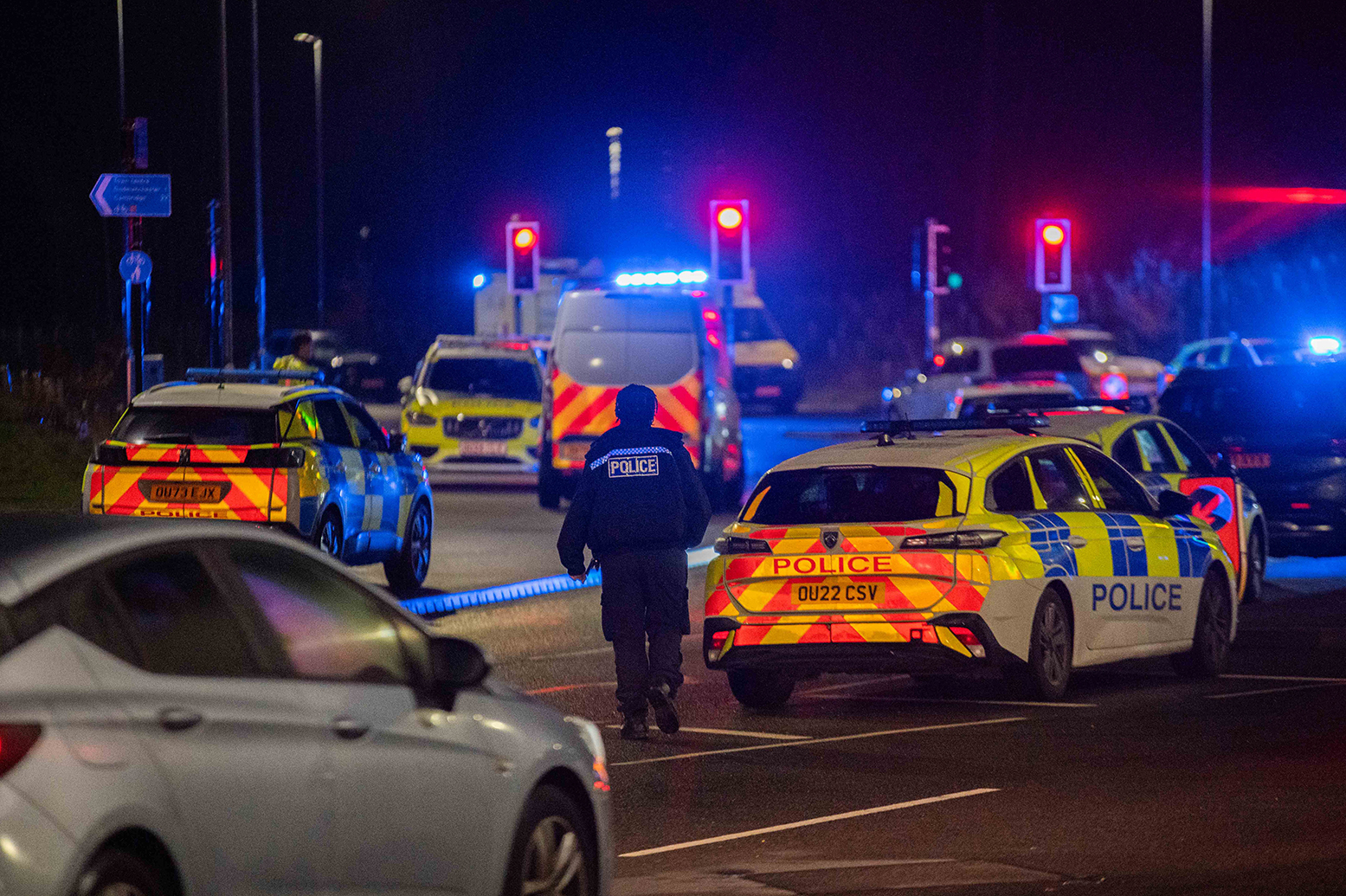Copyright newstatesman

It has been an exhausting week, with each passing day bringing a seemingly new example of increased social disorder and random violence. Worse still, none of us seem to know what to do about it – including the government. That much was brought into sharp relief following the apparently random and, as yet, unexplained attack on a train in Huntingdon on Saturday night. 11 people were injured, of whom one remains in critical condition. At the time of writing, police have confirmed that just one man is being detained in connection with the incident. An eyewitness reports that as police arrived on the scene, the knifeman told them to shoot him and ignored their orders before being tasered. A groundhog sequence has followed. There is widespread outrage and fear about yet another incident of mass violence on our streets. For now, the police have said there is nothing to suggest it is a terrorist incident. “Apart from the fact that what has occurred resembles a terrorist attack and has evidently terrorised people,” wrote William Clouston, leader of the Social Democratic Party on X (formerly Twitter). He is hardly alone in expressing such a view. His distrust is borne of desperation and despair at a government paralysed by events. Ever since the Southport murders in July 2024 when Axel Rudakubana killed three girls aged six, seven, and nine, the government has drifted aimlessly from crisis to crisis. In the meantime, the national mood has only soured as the country buckles under a barrage of mindless violence. Last week began with a binman for Ealing Council, Wayne Broadhurst, being stabbed to death. An Afghan migrant, Safi Dawood, is charged with his murder. Broadhurst had been walking his dog when he came across two people being attacked, a 45-year-old man and a 14-year-old boy. When he intervened, he was killed. Two days later, Derby Crown court sentenced Haybe Cabdiraxmaan Nur to life in prison for the random murder of Gurvinder Singh Johal. The attack was completely random and unprovoked as Johal queued inside a Lloyds bank on the high street. Nur was an illegal immigrant already known to authorities in several European countries – including Italy, Germany, and Holland – where he had been arrested for violent crimes. Almost immediately after arriving in the UK he was arrested for shouting “fuck the English,” and calling people “white racist bastards.” He is also alleged to have headbutted a construction worker. These are just the events over six days last week, amidst a bewildering number of similar cases. In the aftermath of Rudakubana’s murderous rampage, the government turned to the Prevent programme, arguing it should have dealt with him. After all, he had been referred to the scheme on three separate occasions and, although his fascination with violence caused alarm, his lack of identification with a ‘traditional’ ideology meant he was not enrolled on the programme. Hopes that Prevent can address random events of mass-casualty violence are misplaced and uninspired. Originally created as part of the government’s post-9/11 counter-terrorism strategy, Prevent operates as one of four pillars designed to mitigate and contain the terrorist threat. It comprises a soft power arm to more traditional policing methods, such as arrest and prosecution, seeking to intervene upstream by dissuading people from becoming violent extremists in the first place. It was always designed to confront terrorism, not generalised acts of violence (even when terrifying and conducted on scale). Under the government’s own definition, terrorism is described as a violent act “for the purpose of advancing a political, religious, racial or ideological cause.” This demonstrates just how misplaced and lazy the government’s thinking has been in trying to confront the current surge in criminal violence. At Rudakubana’s trial, for example, the prosecution argued “the evidence suggests that the defendant’s purpose was the commission of mass murder as an end in itself,” revealing how mass-casualty criminality bypasses the Prevent programme altogether. These problems were foreseen by Sir William Shawcross almost eighteen months before the Southport murders. During his independent review of Prevent in 2023, he warned that the programme was being misdirected by being asked to consider a vague smorgasbord of different issues such as people obsessed with violence, seemingly for its own sake. “Mental health and neurodevelopmental issues, as well as personal and domestic difficulties are often factors in such referrals,” Shawcross wrote. “This is a serious misallocation of resources and risks diverting attention from the [terrorist] threat itself.” Indeed, Shawcross notes that the government has caught itself in a bind. It has developed an amorphous category within Prevent known as ‘mixed, unclear, unstable’ (MUU) to describe individuals obsessed with violence who otherwise lack a coherent ideological cause in whose name or interest they operate. While this encourages referrals of potentially violent individuals, those identified as MUU fall short of the government’s own definition of terrorism. Consider, for example, a young person who becomes fixated on school shootings. While their expressing of such ideation would merit a referral under the MUU category of Prevent, the government’s own counter-terrorism agencies do not consider school shootings as terrorist acts. As it stands, therefore, a potential school shooter referred to Prevent could easily fall through the bureaucratic cracks because no agency has the responsibility or incentive to make it their problem. Prevent already carries a grave and cumbersome duty – mitigating the terrorist threat to the UK. As the terrorist attack at a synagogue in Manchester last month demonstrated, that challenge remains acute and deadly. “Too many individuals who might be more appropriately supported through other channels are instead being referred to Prevent,” Shawcross warned. As the number of violent attacks increases, government urgently needs get ahead of events by creating a dedicated mechanism to address incidents of generalised, mass-casualty criminality, leaving Prevent to focus on its original goals. The need for bold and decisive thinking in this regard has barely been more urgent. [Further reading: The last flags of Faversham]



